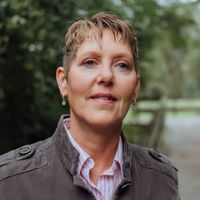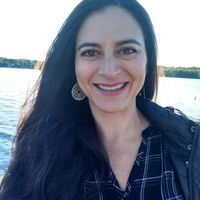Growing up in a family environment where shame was routinely used as a response to everyday behaviors, I found myself constantly walking on eggshells. This early exposure to dysfunction and trauma instilled in me a deep sense of responsibility for addressing the unmet needs and silenced pains that had been passed down through generations.
During my childhood and adolescence, I endured the pain of losing loved ones and friends who struggled with their own mental health conditions and ultimately lost their lives to depression or substance abuse. This recurring theme of loss and trauma became a familiar aspect of my life, one that I began to replicate in my personal relationships, often without realizing it.
My empathetic nature, while being one of my strengths, occasionally turned into a vulnerability. It led me into a relationship with someone who on the surface seemed to need the help and care I was so ready to provide. This person was a narcissist, and my willingness to help was manipulated to their advantage. At the time, I didn't see the manipulation for who they were; I was caught in a trauma bond, convinced I was finally receiving the care I had always been deprived of. But the relationship was far from caring, it deepened my trauma and led to C-PTSD. The manipulation and gaslighting fit the mold of narcissistic abuse. As a result, I was diagnosed with Stockholm syndrome, a condition where victims develop feelings of loyalty and affection toward their abusers as a survival mechanism.
Understanding that we often gravitate toward what feels familiar, even when it's not beneficial, was eye-opening for me. We're often drawn to situations that echo our past experiences, driven by a sense of comfort in the predictability, regardless of the potential for pain. My own path revealed this truth starkly, particularly in how I gravitated towards others who carried similar traumas to those I had lost in my past.
Over the years, I visited various therapists, always repeating the same stories, symptoms, and cycles. I got so used to talking about my issues that my story felt watered down and detached, almost like I was censoring myself without meaning to. I was tired of the whole process, and sometimes, the details seemed too repetitive to even bother mentioning. Every week, I'd force myself to spend an hour with my therapist, who, limited by professional boundaries, felt more like a stranger along for the ride than someone who could really help me. I started to share only what I thought was important, skimming the surface of my problems.
After each session, I'd return to my routine. The real issues, buried deep within me, were glossed over by a superficial layer of 'fitness' and 'self-care' - brought on by wellness rituals that didn’t even begin to touch on the surface of the healing I desperately needed. I was caught in a relentless cycle of always trying to do more, aiming for perfection in all areas of my life, without acknowledging the toll it was taking on me. It was all I knew to do in an attempt to heal: to pour all my energy into every endeavor. Yet, this wasn't getting me any closer to the inner harmony I longed for.
The irony of my life was evident: owning several gyms that promoted fitness and transformation, yet neglecting my own well-being. My career was flourishing, with gyms that stood as pillars of wellness inspiration for many, but personally, I was battling my deepest health challenges. I was living a painful contradiction, and by 2019, despite achieving significant success in my business and navigating a traumatic relationship, I reached a point where continuing down the same path was no longer an option.
The onset of the COVID lockdown in 2020 brought everything to a halt. This pause forced me to reflect deeply on my life and my health. It was during this quiet period, away from the daily grind, that I faced a moment of truth. I had been promoting wellness to others, yet I hadn't found the right path to achieve it for myself. I recognized the need to align my personal well-being with the wellness ideals I advocated for professionally—to truly walk the talk.
Motivated by this realization, I enrolled in educational workshops provided by Embody Labs and Commune to enhance my understanding of the fundamental aspects of grief and trauma. Seeking deeper insights, I then engaged in more comprehensive courses from the International Association of Trauma Recovery Coaching (IAOTRC) and the Institute for the Development of Life Mastery (IDLM). These educational experiences were enlightening, offering new perspectives on Stockholm syndrome, grief, and PTSD.
After completing the first course, I signed up for another, then another. For the first time in my healing journey, I was truly getting to know myself—my brain, my internal systems, and the voice of my body. I approached my experiences with objective curiosity instead of viewing them through a lens of shame, fear, or inconvenience, which used to cloud my perception whenever I faced obstacles on my quest for perfection. I delved into understanding how everything is interconnected within us, and most importantly, I found a community of people who were also on a path toward healing.
Within this community, I connected with others who shared many of my experiences. They were not just available; they helped me become more open to navigating the complexities of mental and physical triggers, and the dance between unconscious and conscious habits that keep us unwell. They supported me in learning how to process my emotions, release what my body had stored, and showed me the importance of nurturing all parts of myself - not just my body. Through this process, I learned about the synergy of body, mind, and soul, emphasizing that true well-being cannot exist unless all parts of ourselves are well.
This approach, rooted in connection, offered me a safe space to be fully seen and heard. It allowed me to work through and share anything that arose, beyond the commonly known milestones of healing and self-improvement. This kind of support has been more impactful for me than twenty years of therapy.
From navigating a life filled with trauma and toxic relationships to embracing genuine wellness and healthy connections, I've experienced a meaningful transformation. I've been able to move away from harmful patterns and prioritize relationships and habits that nurture my physical, mental, and emotional well-being.
This is how, and why, The Session Series was born. It stands as a holistic wellness and embodiment coaching practice, deeply informed by insights into grief and trauma. Our goal is to provide comprehensive resources, personalized coaching, and a supportive community to foster healing, personal growth, and alignment of mind, body, and spirit. Drawing on my background as a trauma specialist, grief doula, energy healer, somatic practitioner, and movement specialist, The Session Series aims to offer the necessary guidance for navigating trauma and grief. It also strives to help individuals break free from harmful patterns and develop healthy ones. This practice serves as a continuous support system beyond the therapist's office, helping individuals explore and heal their pain to achieve true wellness.













